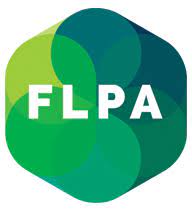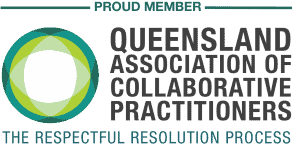Mediation is a form of ADR (amicable/alternative dispute resolution) which, for parenting matters, is a compulsory step you must take before you can file proceedings (unless your matter is urgent) and for property proceedings is a process you will likely be ordered to participate in upon commencing court proceedings, either by a private mediation or a Conciliation Conference. With many marriages ending in divorce, child custody mediation has become a crucial tool in resolving disputes over children’s care and living arrangements. The purpose of child custody mediation is to provide parents with an opportunity to resolve their differences outside of court and reach an agreement that works with the children’s best interest.
What does it mean to go to mediation?
Mediation is a very important step in your resolution process, so do not undervalue it. A mediation that has been properly prepared for can resolve your matter. If you can reach an agreement at mediation you will save yourself the expense of a final hearing, which is both a financial and an emotional expense.
Whether you are trying to negotiate a settlement out of
court or have been ordered to attend mediation as part of the court process,
the way you approach your upcoming mediation could be the difference between
reaching an amicable resolution or continuing down the path to an expensive and
emotionally draining final hearing.
How do I best prepare for family court mediation?
Irrespective of whether your mediation concerns division of property or arrangements for children there will be facts in dispute and possibly facts you are in agreement about. These will vary from matter to matter but may include a number of things. We understand that this is a highly emotional time and be prepared that you may feel overwhelmed. Your chosen practitioner, lawyer, or mediator will advise you what is required prior to, and on the day of, mediation. Additionally, seeking guidance from a family lawyer specialising in how to prepare for the mediation process, Cudmore Legal can offer invaluable legal insight and support a successful mediation, also ensuring your rights and best interests are properly addressed and protected. At Cudmore Legal, we are a team of family law experts who can help you understand what to expect from the family law mediation process and your legal rights, entitlements and responsibilities.
An overview of how to prepare for child custody mediation:
- Understand what it means to go to mediation
- Identity all the issues
- The length of the relationship and date of separation
- Current co parenting relationship and parenting arrangements
- Living arrangements
- Current co parenting relationship and parenting arrangements
- Financial and property matters
- Parties involved and their contribution
- Risk factors
- Identity all the issues
- Make an honest attempt to resolve the issues before mediation
- Family dispute resolution – be prepared to compromise
Identify your Issues
Property Children The length of the relationship and the date of separation. Whether or not the parenting arrangements proposed are practical in the circumstances. The value of the property pool we are attempting to divide. Whether the parenting arrangements sought are in the children’s best interests. Each person’s contributions to the property pool. Whether there are any risk factors associated with the children spending time with one parent and whether these risk can be overcome or otherwise mitigated by protective measures being in place. Whether or not you or your ex-partner has a future need that would warrant a greater percentage of the property pool. What activities or important dates might need to be considered and worked around for the parenting arrangements to be workable in the long-term.
By identifying these issues you can then consider whether some issues can remain outstanding and reach a resolution in any event, and what issues must absolutely be investigated and determined before your matter has a chance of resolving. In parenting matters allegations of violence or sexual abuse are serious issues that cannot be ignored and your matter will need to proceed to a final hearing for final determination. In your circumstances, there may be some issues that cannot be resolved by mediation. In any case, you should try and identify all the relevant issues that are outstanding and could be resolved in preparation for your upcoming mediation.
Make an honest attempt to resolve the issues before mediation
Whether or not your mediation will be successful often relies upon the work that is undertaken in the lead up to mediation. To give your mediation the best chance of success an honest and genuine attempt must be made, by both parties, to address the outstanding issues. For example, in the lead up to a mediation which will consider the division of assets, if there are any assets or liabilities that do not have an agreed value it is wise to attempt to negotiate an agreement or organise a formal valuation. By making a list of these issues and attempting to resolve them before mediation will allow you and your ex-partner to focus on what’s really important: trying to find a resolution that is fair and reasonable (and in the best interests of the children) in the circumstances.
Be Prepared to Compromise
Mediations are only successful when both parties approach the issues reasonably. There may be outstanding issues that could not be resolved or thoroughly investigated before your mediation date, and that’s OK. Generally between four to six hours are set aside for mediation, which is generally not enough time to forensically dissect and determine your family law matter. Instead, mediation is an attempt to achieve a resolution that you and your ex-partner can live with, even in spite of any outstanding issues. Therefore, it is important to take some time before the day of your mediation to consider what arrangements you could live with. This is not about just accepting whatever is proposed, but considering what settlement is beneficial from a financial and emotional standpoint and will not prolong your matter unnecessarily until a final hearing. The mediation can be draining and emotional, and so to consider your options and understand your bottom line before you attend will make you feel more comfortable as you are proposing and considering settlement offers.
Family Law Mediation FAQs
Should I seek legal advice before going into child custody mediation?
The most effective mediation happens when both parties have sought legal advice about their circumstances beforehand. You are much more likely to be prepared to understand the probable outcomes, your options, and how a Court might deal with your matter.
How can a family law specialist help me during mediation?
In short, A family law specialist can provide you with expert advice, help you understand your rights and obligations, and assist in formulating a strategy to achieve a successful outcome during mediation sessions.
What Documents Should I Bring to a Mediation Session?
Bring all relevant documents, including financial statements, property valuations, and any previous court orders or agreements. Your family lawyer at Cudmore Legal can guide you on the specific documents needed for your case.
Can My Legal Representative Attend Mediation with Me?
Yes, your legal representatives can attend mediation sessions with you. They can provide legal support, help you articulate your concerns, and ensure your interests are protected.
What is the Role of the Mediator During Mediation?
The mediator is a neutral third party who facilitates discussions between you and the other party. They help both sides communicate effectively and work towards a mutually agreeable solution.
How Can I Ensure a Successful Outcome in Mediation?
Be open to compromise, communicate clearly, and make a genuine effort to understand the other party’s perspective. Obtaining advice from a family law specialist can also significantly enhance your chances of a successful outcome.
Is Mediation Cost Effective Compared to Going to Court?
Yes, mediation is generally more cost effective than court litigation. It can save you time and legal fees, and often leads to quicker resolutions.














